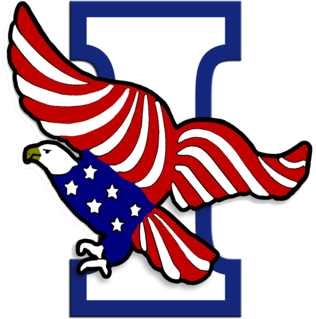This article is being considered for deletion in accordance with Wikipedia's deletion policy. |
This article includes a list of references, related reading or external links, but its sources remain unclear because it lacks inline citations .(November 2016) (Learn how and when to remove this template message) |
Vermont Working Families Party | |
|---|---|
| Chairman | Marth Allen (Co-Chair) Dan Brush (Co-Chair) Jennifer Henry (Co-Chair) Bernard Kuntzelmann (Co-Chair) Richard Russell (Co-Chair) |
| Founded | 2006 |
| Ideology | Progressivism Populism Social democracy |
| Political position | Center-left |
| Colors | Blue and White |
| Website | |
| http://www.vtworkingfamilies.org | |
The Vermont Working Families Party (VTWFP) is a minor political party in the American state of Vermont that is a "sister" party of the Working Families Party group, consisting of New York, Oregon, Delaware, Connecticut, and South Carolina.

Vermont is a state in the New England region of the northeastern United States. It borders the U.S. states of Massachusetts to the south, New Hampshire to the east, New York to the west, and the Canadian province of Quebec to the north. Vermont is the second-smallest by population and the sixth-smallest by area of the 50 U.S. states. The state capital is Montpelier, the least populous state capital in the United States. The most populous city, Burlington, is the least populous city to be the most populous city in a state. As of 2015, Vermont was the leading producer of maple syrup in the United States. In crime statistics, it was ranked as the safest state in the country in 2016.

The Working Families Party (WFP) is a minor political party in the United States, founded in New York in 1998. There are active chapters in New York, Connecticut, Oregon, New Jersey, Maryland, Washington D.C., Pennsylvania, Wisconsin, Rhode Island, Nevada, West Virginia, New Mexico, Ohio, Texas, and Illinois.
Contents
The Working Families Party was first organized in 1998 by a coalition in New York of labor unions, ACORN and other community organizations, members of the now-inactive national New Party, and a variety of public interest groups such as Citizen Action of New York.[ citation needed ]
The Association of Community Organizations for Reform Now (ACORN) was a collection of community-based organizations in the United States that advocated for low- and moderate-income families by working on neighborhood safety, voter registration, health care, affordable housing, and other social issues. At its peak ACORN had over 500,000 members and more than 1,200 neighborhood chapters in over 100 cities across the U.S., as well as in Argentina, Canada, Mexico, and Peru. ACORN was founded in 1970 by Wade Rathke and Gary Delgado. ACORN currently still exists internationally and in several cities across Canada. The rest of this article refers specifically to ACORN-USA, unless otherwise noted.

Community organizing is a process where people who live in proximity to each other come together into an organization that acts in their shared self-interest.








